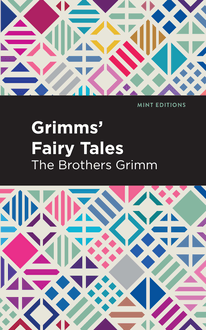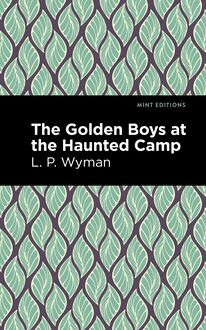-
 Univers
Univers
-
 Ebooks
Ebooks
-
 Livres audio
Livres audio
-
 Presse
Presse
-
 Podcasts
Podcasts
-
 BD
BD
-
 Documents
Documents
-
- Cours
- Révisions
- Ressources pédagogiques
- Sciences de l’éducation
- Manuels scolaires
- Langues
- Travaux de classe
- Annales de BEP
- Etudes supérieures
- Maternelle et primaire
- Fiches de lecture
- Orientation scolaire
- Méthodologie
- Corrigés de devoir
- Annales d’examens et concours
- Annales du bac
- Annales du brevet
- Rapports de stage
La lecture à portée de main
Vous pourrez modifier la taille du texte de cet ouvrage
Découvre YouScribe en t'inscrivant gratuitement
Je m'inscrisDécouvre YouScribe en t'inscrivant gratuitement
Je m'inscrisEn savoir plus
Vous pourrez modifier la taille du texte de cet ouvrage
En savoir plus

Description
Dream Days (1898) is a collection of children’s stories by Kenneth Grahame. It was published as a sequel to The Golden Age (1895), a collection of semi-autobiographical stories reflecting on the nature of childhood and the strange, distant lives of adults. Although less popular than The Wind in the Willows (1908), which would go on to become not only a defining work of Edwardian English literature, but one of the most popular works of children’s fiction in the world, Dream Days features “The Reluctant Dragon,” one of Grahame’s most enduring short works of fiction.
Carrying on the themes and concerns of The Golden Age, the author reflects on his youth among elders who exemplified Victorian values of stoicism and quiet decency. In these stories of innocence and experience, he recalls the games they played, the places they discovered, and the legends they made of the normal, the boring, and the everyday wonders of an old world seen through young eyes. “The Reluctant Dragon,” the centerpiece of Dream Days, is a story about a young boy who discovers a wise, poetry-loving dragon while exploring the Berkshire Downs near his home in Oxfordshire. Against all appearances, the two sensitive souls become fast friends. When the townspeople discover the dragon, however, they send for the legendary St. George to slay the creature they see as a threat. Faced with the loss of his only friend in the world, the young boy must convince St. George to not only spare the dragon’s life, but to convince the townspeople of his kind and gentle nature. Dream Days is a collection of stories for children which finds room for fantasy and adventure in the smallest of places, and kindness in the largest of hearts.
With a beautifully designed cover and professionally typeset manuscript, this edition of Kenneth Grahame’s Dream Days is a classic work of British literature reimagined for modern readers.
Sujets
Informations
| Publié par | Mint Editions |
| Date de parution | 20 avril 2021 |
| Nombre de lectures | 0 |
| EAN13 | 9781513285221 |
| Langue | English |
Informations légales : prix de location à la page 0,0350€. Cette information est donnée uniquement à titre indicatif conformément à la législation en vigueur.
Extrait
Dream Days
Kenneth Grahame
Dream Days was first published in 1898.
This edition published by Mint Editions 2020.
ISBN 9781513280202 | E-ISBN 9781513285221
Published by Mint Editions®
minteditionbooks.com
Publishing Director: Jennifer Newens
Design & Production: Rachel Lopez Metzger
Project Manager: Micaela Clark
Typesetting: Westchester Publishing Services
C ONTENTS T HE T WENTY -F IRST OF O CTOBER D IES I RAE M UTABILE S EMPER T HE M AGIC R ING I TS W ALLS WERE AS OF J ASPER A S AGA OF THE S EAS T HE R ELUCTANT D RAGON A D EPARTURE
T HE T WENTY -F IRST OF O CTOBER
I n the matter of general culture and attainments, we youngsters stood on pretty level ground. True, it was always happening that one of us would be singled out at any moment, freakishly, and without regard to his own preferences, to wrestle with the inflections of some idiotic language long rightly dead; while another, from some fancied artistic tendency which always failed to justify itself, might be told off without warning to hammer out scales and exercises, and to bedew the senseless keys with tears of weariness or of revolt. But in subjects common to either sex, and held to be necessary even for him whose ambition soared no higher than to crack a whip in a circus-ring—in geography, for instance, arithmetic, or the weary doings of kings and queens—each would have scorned to excel. And, indeed, whatever our individual gifts, a general dogged determination to shirk and to evade kept us all at much the same dead level,—a level of Ignorance tempered by insubordination.
Fortunately there existed a wide range of subjects, of healthier tone than those already enumerated, in which we were free to choose for ourselves, and which we would have scorned to consider education; and in these we freely followed each his own particular line, often attaining an amount of special knowledge which struck our ignorant elders as simply uncanny. For Edward, the uniforms, accoutrements, colours, and mottoes of the regiments composing the British Army had a special glamour. In the matter of facings he was simply faultless; among chevrons, badges, medals, and stars, he moved familiarly; he even knew the names of most of the colonels in command; and he would squander sunny hours prone on the lawn, heedless of challenge from bird or beast, poring over a tattered Army List. My own accomplishment was of another character—took, as it seemed to me, a wider and a more untrammelled range. Dragoons might have swaggered in Lincoln green, riflemen might have donned sporrans over tartan trews, without exciting notice or comment from me. But did you seek precise information as to the fauna of the American continent, then you had come to the right shop. Where and why the bison “wallowed”; how beaver were to be trapped and wild turkeys stalked; the grizzly and how to handle him, and the pretty pressing ways of the constrictor,—in fine, the haunts and the habits of all that burrowed, strutted, roared, or wriggled between the Atlantic and the Pacific,—all this knowledge I took for my province. By the others my equipment was fully recognized. Supposing a book with a bear-hunt in it made its way into the house, and the atmosphere was electric with excitement; still, it was necessary that I should first decide whether the slot had been properly described and properly followed up, ere the work could be stamped with full approval. A writer might have won fame throughout the civilized globe for his trappers and his realistic backwoods, and all went for nothing. If his pemmican were not properly compounded I damned his achievement, and it was heard no more of.
Harold was hardly old enough to possess a special subject of his own. He had his instincts, indeed, and at bird’s-nesting they almost amounted to prophecy. Where we others only suspected eggs, surmised possible eggs, hinted doubtfully at eggs in the neighbourhood, Harold went straight for the right bush, bough, or hole as if he carried a divining-rod. But this faculty belonged to the class of mere gifts, and was not to be ranked with Edward’s lore regarding facings, and mine as to the habits of prairie-dogs, both gained by painful study and extensive travel in those “realms of gold,” the Army List and Ballantyne.
Selina’s subject, quite unaccountably, happened to be naval history. There is no laying down rules as to subjects; you just possess them—or rather, they possess you—and their genesis or protoplasm is rarely to be tracked down. Selina had never so much as seen the sea; but for that matter neither had I ever set foot on the American continent, the by-ways of which I knew so intimately. And just as I, if set down without warning in the middle of the Rocky Mountains, would have been perfectly at home, so Selina, if a genie had dropped her suddenly on Portsmouth Hard, could have given points to most of its frequenters. From the days of Blake down to the death of Nelson (she never condescended further) Selina had taken spiritual part in every notable engagement of the British Navy; and even in the dark days when she had to pick up skirts and flee, chased by an ungallant De Ruyter or Van Tromp, she was yet cheerful in the consciousness that ere long she would be gleefully hammering the fleets of the world, in the glorious times to follow. When that golden period arrived, Selina was busy indeed; and, while loving best to stand where the splinters were flying the thickest, she was also a careful and critical student of seamanship and of maneuver. She knew the order in which the great line-of-battle ships moved into action, the vessels they respectively engaged, the moment when each let go its anchor, and which of them had a spring on its cable (while not understanding the phrase, she carefully noted the fact); and she habitually went into an engagement on the quarter-deck of the gallant ship that reserved its fire the longest.
At the time of Selina’s weird seizure I was unfortunately away from home, on a loathsome visit to an aunt; and my account is therefore feebly compounded from hearsay. It was an absence I never ceased to regret—scoring it up, with a sense of injury, against the aunt. There was a splendid uselessness about the whole performance that specially appealed to my artistic sense. That it should have been Selina, too, who should break out this way—Selina, who had just become a regular subscriber to the “Young Ladies’ Journal,” and who allowed herself to be taken out to strange teas with an air of resignation palpably assumed—this was a special joy, and served to remind me that much of this dreaded convention that was creeping over us might be, after all, only veneer. Edward also was absent, getting licked into shape at school; but to him the loss was nothing. With his stern practical bent he wouldn’t have seen any sense in it—to recall one of his favourite expressions. To Harold, however, for whom the gods had always cherished a special tenderness, it was granted, not only to witness, but also, priestlike, to feed the sacred fire itself. And if at the time he paid the penalty exacted by the sordid unimaginative ones who temporarily rule the roast, he must ever after, one feels sure, have carried inside him some of the white gladness of the acolyte who, greatly privileged, has been permitted to swing a censer at the sacring of the very Mass.
October was mellowing fast, and with it the year itself; full of tender hints, in woodland and hedgerow, of a course well-nigh completed. From all sides that still afternoon you caught the quick breathing and sob of the runner nearing the goal. Preoccupied and possessed, Selina had strayed down the garden and out into the pasture beyond, where, on a bit of rising ground that dominated the garden on one side and the downs with the old coach-road on the other, she had cast herself down to chew the cud of fancy. There she was presently joined by Harold, breathless and very full of his latest grievance.
“I asked him not to,” he burst out. “I said if he’d only please wait a bit and Edward would be back soon, and it couldn’t matter to him, and the pig wouldn’t mind, and Edward’d be pleased and everybody’d be happy. But he just said he was very sorry, but bacon didn’t wait for nobody. So I told him he was a regular beast, and then I came away. And—and I b’lieve they’re doing it now!”
“Yes, he’s a beast,” agreed Selina, absently. She had forgotten all about the pig-killing. Harold kicked away a freshly thrown-up mole-hill, and prodded down the hole with a stick. From the direction of Farmer Larkin’s demesne came a long-drawn note of sorrow, a thin cry and appeals telling that the stout soul of a black Berkshire pig was already faring down the stony track to Hades.
“D’ you know what day it is?” said Selina presently, in a low voice, looking far away before her.
Harold did not appear to know, nor yet to care. He had laid open his mole-run for a yard or so, and was still grubbing at it absorbedly.
“It’s Trafalgar Day,” went on Selina, trancedly; “Trafalgar Day—and nobody cares!”
Something in her tone told Harold that he was not behaving quite becomingly. He didn’t exactly know in what manner; still, he abandoned his mole-hunt for a more courteous attitude of attention.
“Over there,” resumed Selina—she was gazing out in the direction of the old highroad—“over there the coaches used to go by. Uncle Thomas was telling me about it the other day. And the people used to watch for ’em coming, to tell the time by, and p’r’aps to get their parcels. And one morning—they wouldn’t be expecting anything different—one morning, first there would be a cloud of dust, as usual, and then the coach would come racing by, and then they would know! For the coach would be dressed in laurel, all laurel from stem to stern! And the coachman would be wearing laurel, and the guard would be wearing laurel; and then they would know, then they would know!”
Harold listened in respectful
-
 Univers
Univers
-
 Ebooks
Ebooks
-
 Livres audio
Livres audio
-
 Presse
Presse
-
 Podcasts
Podcasts
-
 BD
BD
-
 Documents
Documents
-
Jeunesse
-
Littérature
-
Ressources professionnelles
-
Santé et bien-être
-
Savoirs
-
Education
-
Loisirs et hobbies
-
Art, musique et cinéma
-
Actualité et débat de société
-
Jeunesse
-
Littérature
-
Ressources professionnelles
-
Santé et bien-être
-
Savoirs
-
Education
-
Loisirs et hobbies
-
Art, musique et cinéma
-
Actualité et débat de société
-
Actualités
-
Lifestyle
-
Presse jeunesse
-
Presse professionnelle
-
Pratique
-
Presse sportive
-
Presse internationale
-
Culture & Médias
-
Action et Aventures
-
Science-fiction et Fantasy
-
Société
-
Jeunesse
-
Littérature
-
Ressources professionnelles
-
Santé et bien-être
-
Savoirs
-
Education
-
Loisirs et hobbies
-
Art, musique et cinéma
-
Actualité et débat de société
- Cours
- Révisions
- Ressources pédagogiques
- Sciences de l’éducation
- Manuels scolaires
- Langues
- Travaux de classe
- Annales de BEP
- Etudes supérieures
- Maternelle et primaire
- Fiches de lecture
- Orientation scolaire
- Méthodologie
- Corrigés de devoir
- Annales d’examens et concours
- Annales du bac
- Annales du brevet
- Rapports de stage




















